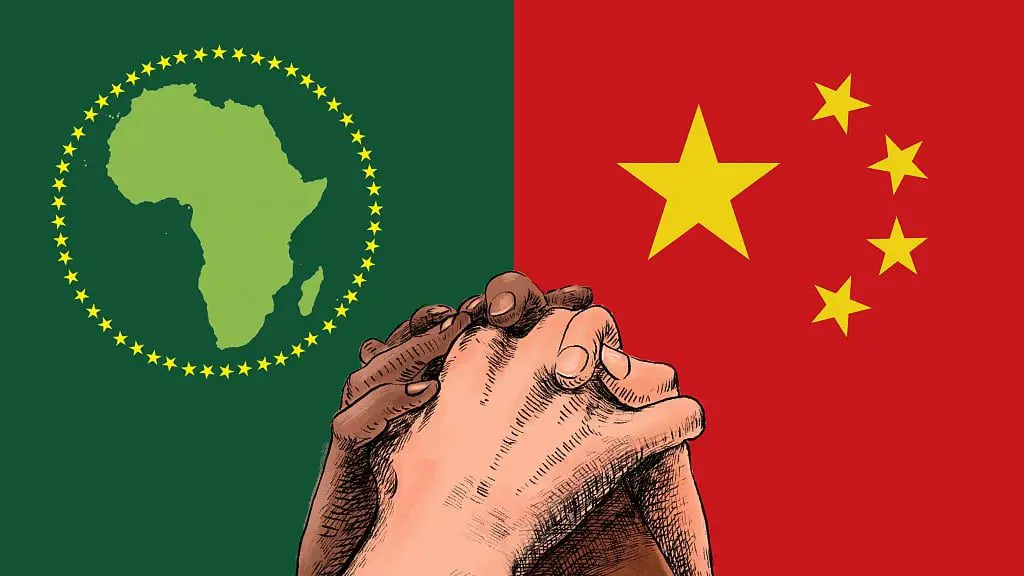More than one billion people live in Africa, and the continent is expected to be responsible for more than half of the world’s population growth by 2050. According to the European Parliament resolution of 25 March 2021 on a new strategy “EU-Africa: Partnership for Sustainable and Inclusive Development”, the 10 fastest growing economies in the world are located in Africa.
This rapid transition poses major challenges, but also offers great rewards for countries willing to risk billions in infrastructure. To date, no country has responded to the continent’s call as China. At the same time, Forbes predicts that the continent is on the verge of becoming an economy worth more than 5 trillion. dollars.
As early as 2013, China overtook the United States as the continent’s largest direct investor in foreign direct investment (FDI) flows, according to the Swiss-African Business Relations Status Quo 2021. Over the past decade, Chinese investment in Africa has On average, more than 18,000 jobs are created each year, making the country a leader in this regard, ahead of the United States, the report said.
According to the Ministry of Commerce of the People’s Republic of China, Chinese private enterprises account for 90% of the total number of Chinese enterprises investing directly in Africa and 70% of China’s total direct investment in Africa. But it is Chinese state-owned companies that are investing in large-scale projects, especially in infrastructure, energy and resources.
The Ministry of Commerce of the People’s Republic of China also points out that since 2010, one third of the network and energy infrastructure in Africa has been built by Chinese companies. Through investments from Chinese state-owned enterprises, China has also become the continent’s most important investment partner in energy infrastructure.
China’s rise as an economic power in Africa lies in the concept of “aid”. However, China’s investment does not correspond to the idea of ”aid” in the true sense of the word. These projects usually take the form of export credits, military aid or secured loans (with tempting conditions for forgiveness). Economic engagement with China leads to a greater level of political coordination between the world’s second largest economy and African countries.
In essence, China’s investment in Africa ensures that a global consensus on China’s interests is easily reached. As African countries become more dependent on economic commitment, their willingness to commit to China’s wishes, especially on international issues, is growing because of their inability to survive without external economic intervention, according to a report by the US Institute for Foreign Affairs politics.
Why do Chinese private companies invest in Africa?
Chinese financial media Sina Finance Global cites several important reasons.
Demographic problems
China’s population is aging. By 2050, the average age in China is expected to reach 51, compared to 43 in the United States and 47 in the EU. By 2060, one third of Chinese citizens will be over the age of 65, making China one of the oldest countries in the world. In Africa, the opposite trend is observed. By 2034, the continent’s workforce is expected to exceed that of China and India combined, as China’s population will fall below 1 billion by 2050. According to these figures, the young workforce in Africa is exactly what Chinese businesses need today.
China is no longer a cheap labor market
In 2020, China’s GDP per capita reached $ 11,000. According to the World Bank, China will soon join the group of high-income countries per capita, so the cost of labor will only increase. By comparison, the GDP per capita of sub-Saharan Africa is $ 1,500 in 2021, which is less than 1/7 of China’s GDP per capita.
The trend is for manufacturing companies to continue relocating production lines to the Southeast Asian Nations Association (ASEAN) and Africa.
China has turned from a long-standing agricultural power into an importing country
The rapid urbanization of China is leading to the erosion of fertile agricultural land. By 2030, the average income population is expected to grow from 400 million to 800 million, and meeting China’s structural agricultural needs will become an important national issue.
China imports all types of African agricultural products, from cereals, cane sugar to seafood and red wine. As geopolitical tensions between the United States and China intensify, China must relocate parts of its agricultural industrial and commercial chains outside the United States. Africa’s agricultural trade with China and China’s investment in agricultural technology in Africa meet the needs of the Far Eastern market.
China is transforming from a global factory to a global consumer market
Only by expanding production capacity on the supply side in Africa can China’s huge market demand be met. Since 2000, China-Africa trade has increased 20-fold, and Chinese foreign direct investment in Africa has increased 100-fold to meet growing Chinese consumer demand, Chinese companies need to invest in the African industrial chain to increase production and efficiency.
Africa is a fast growing consumer market
The rise of the middle class in Africa will lead to a series of consumer demands, such as growing demand for energy, consumption, education, entertainment, finance and health. Chinese private companies are entering these areas, while importing a digital economy model and technology platforms into Africa and China, according to Sina Finance.







